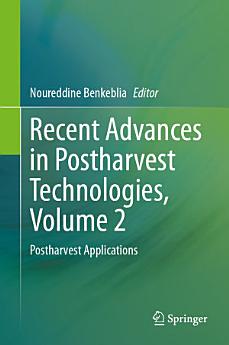Recent Advances in Postharvest Technologies, Volume 2: Postharvest Applications
Über dieses E-Book
This two-volume work focuses on innovative technologies that extend and preserve shelf life of fruits and vegetables. Volume 1 offers a review on the state of the art modern technologies in the postharvest filed. The accompanying Volume 2 explores advanced and novel technologies after harvest, particularly the application of nanotechnologies to packaging materials.
Autoren-Profil
Dr. Noureddine Benkeblia has been working on food sciences and technologies from 1991. He started his work on crops physiology and biochemistry, preservation technologies such as irradiation, chemicals, modified atmosphere packaging (MAP), rare gases and other natural biological compounds (essential oils). From 2000, he focused his research on the postharvest metabolism of carbohydrates, mainly fructooligosaccharides (FOS) and fructans, and their impact on crops qualities. He also introduced new tools of "Metabolomics" in his research to investigate the biochemistry and the biological system of the biosynthesis and metabolism of FOS in fructan-containing plants (using asparagus and onion as models).






